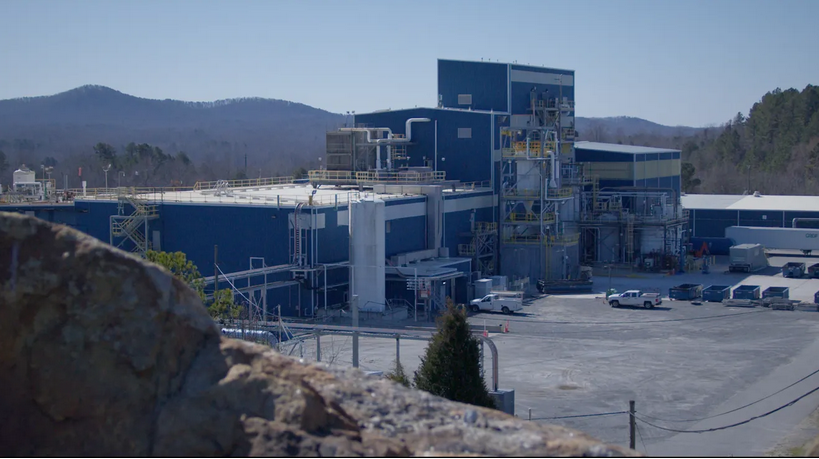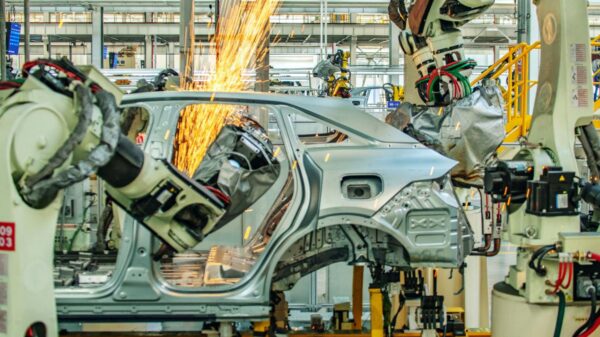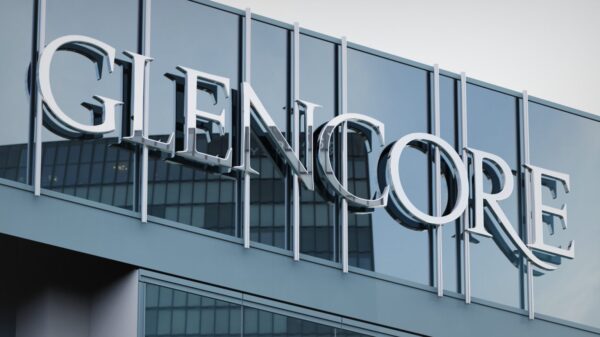Albemarle Corporation‘s (NYSE: ALB) plans to reopen a lithium mine in North Carolina has hit a roadblock due to the collapse in lithium prices.
Announced on Friday, the company had originally planned to reopen its Kings Mountain by late 2026 to meet the demand for domestic lithium, and may need to put it off unless lithium prices rebound.
Kings Mountain could produce enough material to manufacture 1.2 million electric vehicles annually, as it sits on one of the world’s richest deposits of spodumene ore. Currently, the only operational lithium mine in the U.S., located in Silver Peak, Nevada, belongs to Albemarle.
“It’s going to be a later date,” Eric Norris, president of energy storage at Albemarle, said. “It slowed down a bit given the concerns we have, but we are still progressing it forward.”
Albemarle has not set a precise date for Kings Mountain to become operational, according to Norris. The company is preparing to initiate the permitting process, which will take two years to complete. According to the company, construction will be a multiyear undertaking before the mine becomes operational.
Kings Mountain operated as a lithium mine from 1937 until the 1980s when its owner, Rockwood Holdings, ceased operations to focus on resources in Chile. Albemarle acquired Rockwood and the mine in 2015.
Global lithium prices have collapsed more than 40 per cent since last year and 81 per cent from 2022 highs. As a result, pressure has mounted on Albemarle, forcing the company to adjust its expansion plans. Albemarle has put on hold a chemical plant in Richburg, South Carolina, that would have processed the lithium from Kings Mountain.
Read more: Lithium South expands well installation program at Hombre Muerto North
Read more: Lithium South installs first production well at largest claim block, prepares for testing
President Biden has set battery supply chain priorities
The Biden administration has prioritized setting up a battery supply chain, supported by domestic lithium production and processing, to end China’s market dominance. The Defense Department awarded Albemarle a USD$90 million grant to support domestic mining, which the company is using to help reopen Kings Mountain.
Albemarle CEO Kent Masters said that the industry still needs to add significant capacity as electric-vehicle demand remains strong, with more than 20 per cent global growth so far this year. However, lithium prices have fallen below the marginal cost of production as the supply of the commodity has expanded.
“It’s difficult to justify investment projects where the prices are today,” Masters said.
Masters also said that lithium prices would need to be a minimum of USD$20 per kilogram to justify further investment. In 2023, the average price reached USD$15 per kilogram. Masters said he anticipates volatility in lithium prices will subside, with lower highs and higher lows, as the market develops.
Albemarle’s profit plummeted 99 per cent to USD$2.4 million in the first quarter from USD$1.2 billion a year ago. Concurrently, revenue dropped 47 per cent to USD$1.36 billion, down from USD$2.58 billion in the first quarter of 2023.
Although Albemarle took a huge hit compared to last year, the company’s earnings largely met Wall Street expectations, and its revenue exceeded forecasts. Investors responded positively to the results, with shares closing more than 5 per cent higher at $125.30 on Thursday.
But the company is taking steps to rectify its situation.
Read more: Lithium South explores alternative production methods at Hombre Muerto North
Read more: Lithium South completes pumping test in Alba Sabrina Tenement
Not all companies are following Albemarle’s example
Albemarle plans to conduct more lithium auctions as the world’s largest producer of the battery metal aims to bring more transparency to the opaque pricing market.
In March and April, Albemarle conducted four auctions for spodumene concentrate and lithium carbonate in China due to a build-up in inventories.
The auctions marked the first time Albemarle had to sell its lithium products through this method and occurred as prices for the battery metal tumbled more than 80 per cent from record highs in late 2022. The market has shifted from fears of shortages to a glut in inventories, leading to a collapse in prices that has wreaked havoc among producers.
Until a few years ago, the lithium sector negotiated long-term supply contracts at fixed prices. However, large price swings began creating cost headaches for battery firms and automakers, prompting a shift to annual agreements. These agreements are now struck in a manner similar to other metals like copper, with deals inked at premiums or discounts to a measure of spot prices.
Not all lithium companies are following Albemarle’s lead during this time of price instability.
Bucking the trend of companies halting production due to a perceived lithium market glut, Lithium South Development Corporation (TSXV:LIS) (OTC:LISMF) is forging ahead with its plans.
It recently filed a positive preliminary economic assessment (PEA) for its HMN Li Project in Argentina, indicating a strong potential future with a projected Net Present Value (NPV) after tax of USD$938 million.
Meanwhile, established industry giant Sociedad Química y Minera de Chile S.A. (NYSE: SQM) continues to produce lithium, building stockpiles of the battery metal for when the market rebounds.
Lithium South Development Corporation is a sponsor of Mugglehead news coverage
.
Follow Joseph Morton on Twitter
joseph@mugglehead.com













